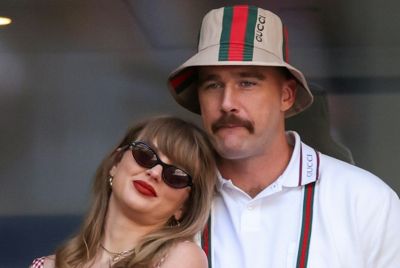Is This the End for Twitch? Emiru Assault Scandal Triggers Lawsuit Threats and Public Outrage
Experts warn Twitch could face multimillion-pound lawsuits over safety failures at TwitchCon 2025

Twitch is facing what legal analysts are calling its biggest crisis yet, as streamer Emiru's assault at TwitchCon triggers potential lawsuits that could shake the billion-dollar streaming giant to its core.
Lawyers and creators alike are warning that Twitch may soon be embroiled in a legal battle over claims of negligent security and breach of duty after the shocking incident in San Diego.
The Assault That Sparked a Firestorm
During the first day of TwitchCon 2025, Emiru, a 27-year-old streamer and cosplayer known for her work with the organisation OTK (One True King), was assaulted by a man who rushed towards her during a fan meet-and-greet, grabbing her face and attempting to kiss her before security intervened.
The disturbing video went viral within hours, fuelling outrage across social media and sparking renewed questions about Twitch's ability to protect its creators.
According to Twitch, the attacker was 'immediately blocked from the venue and banned indefinitely from Twitch'. Police were notified, and additional security was deployed. Yet legal experts say the platform's response may not be enough to shield it from costly lawsuits.
Legal Trouble Looming for Twitch
But California-based attorney Lindsay Gordon said Twitch could face several civil claims if Emiru or OTK decide to pursue legal action.
'Under California law, event organisers have a clear duty of care to ensure reasonable safety measures,' she told The Verge. 'If Twitch knew there were prior harassment risks involving Emiru, and still failed to provide sufficient protection, that's classic negligent security.'
Possible claims include negligent security, breach of contract, and emotional distress, particularly if creator agreements guaranteed safety protocols during official meet-and-greets.
Adding to the controversy, reports suggest that Emiru's usual bodyguard, previously banned from TwitchCon for restraining a stalker, was not allowed entry this year. Legal experts say this detail could strengthen any legal case against the company.
Legal commentator Ethan Lam noted: 'Twitch is exposed on multiple fronts. They could face a creator class action if others come forward saying their safety concerns were ignored.'
Twitch's Official Response
In an official statement, Twitch apologised and reaffirmed its 'zero tolerance for harassment or acts that inhibit the safety and security of our community'. The company said it had increased staff presence around streamers, tightened check-ins, and revoked plus-one passes for the rest of the event.
'It's really important to us that our creators enjoy their experience at TwitchCon and feel safe,' the statement read. 'We regret that their experience was disrupted by this horrible incident.'
Twitch CEO Dan Clancy also addressed the matter publicly, telling PC Gamer: 'We're looking very closely at everything that happened there, and I care deeply about Emi; she's a friend of mine. I want to see how we can support her.'
Despite these assurances, many creators remain unconvinced, accusing Twitch of prioritising optics over accountability.
Creators Call Out Twitch
Prominent streamers have rallied behind Emiru. Fellow OTK member Tectone praised her for speaking out, saying she was 'publicly dismantling them about their malpractices and mishandling of creators' safety'.
Another high-profile streamer, Asmongold, criticised Twitch's pattern of reactive crisis management, arguing that 'the company only changes when public pressure forces its hand'.
Some creators, such as Nicholas Light, even called for TwitchCon to be cancelled altogether, describing it as 'a breeding ground for predators and parasocial weirdos'.
The sentiment reflects broader frustration among female streamers who have long complained of harassment at both live events and online.
A Reputation on the Line
Beyond immediate outrage, the incident has exposed deeper issues within Twitch's event safety framework. Critics say the platform's failure to prevent repeated incidents, including stalking and public harassment of creators like Valkyrae and Cinna, shows a lack of long-term risk management.
So far, Twitch has not confirmed whether the attacker has been formally charged or whether Emiru plans to pursue legal action. The lack of transparency has only intensified speculation about the company's liability and internal crisis response.
'This is a watershed moment for Twitch,' said media analyst Charlotte Nguyen. 'If a lawsuit goes ahead and the company is found negligent, it could redefine how creator platforms handle safety forever.'
For Twitch, the fallout is more than a PR nightmare. It may determine whether the world's largest live-streaming platform can survive the growing backlash from the very creators who built it.
© Copyright IBTimes 2025. All rights reserved.





















